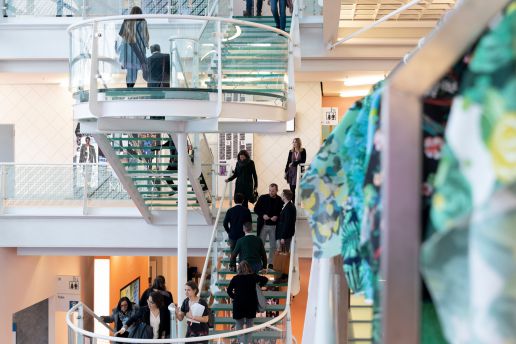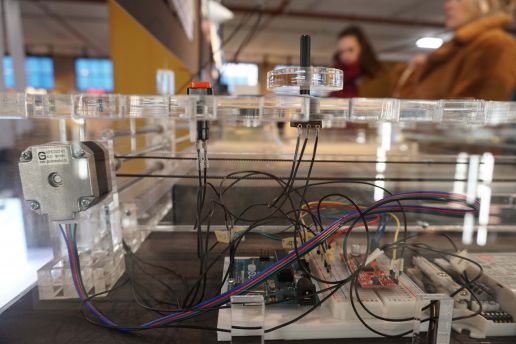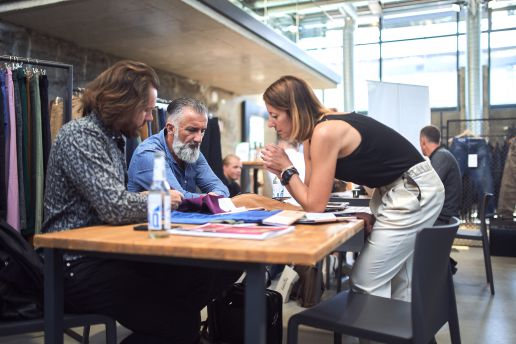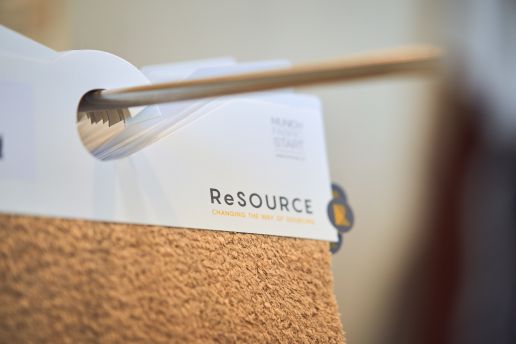Munich Fabric Start
KEYHOUSE – A Strong Network of Creative Minds
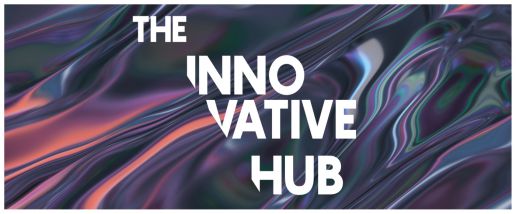
Progress and new levels of sustainability. Combining hand-made and digitalisation. The future of the textile and fashion industry is complex and challenging. The demand for greater transparency and information, for innovative solutions, new mindsets and forms of production is all the more loud and urgent.
KEYHOUSE, as the think tank of MUNICH FABRIC START, offers concrete approaches towards a visionary textile and fashion industry, providing answers, inviting discussions and interaction, showcasing new directions and definitions of innovation. In this way, an inspiring network of unique partnerships and collaborations with ambitious projects has been established.
At KEYHOUSE, everything revolves around innovation – be it the luminous jacket from MUSGO TECH, 3D printing and 3D knitting from Cocccon, the solution for a digitally networked supply chain from Lectra, or the Nebudye dyeing process using the Officina +39 nebulization system. Numerous innovative suppliers will showcase their trend defining developments for the first time at KEYHOUSE, including CLO Virtual Fashion with 3D visualisation of garments, Circular Fashion with workshops and software tools for innovative recycling management, and Recover providing accurate colour in upcycled yarns.
“Fashion must take a holistic hybrid approach in order to establish sustainable innovations in the apparel industry as a permanent feature.
These sustainability initiatives can be implemented by integrating new technologies with a high degree of design, disruption and integration.”
Muchaneta Kapfunde, Founding Editor-in-Chief FashNerd.com
HIGHLIGHTS AT KEYHOUSE
THE NUTURE ROOM WITH PAULINE VAN DONGEN. With “The Nurture Room“, Pauline van Dongen creates a space for meeting and inviting exchange among like-minded people who share the desire to redefine the fashion industry. The organised shared research sessions on topics such as workwear, outdoor clothing or casual wear etc. are led by fashion tech experts and show how technology can be sensibly embedded in clothing. Workshops will inspire participants to expand their know-how and connect companies along the entire value chain so that they can follow up with concrete action. Please find an overview of all workshops sessions here.
Due to the limited number of participants in the free workshops, we kindly ask you to register by sending an email to Chantal Gräff at cgr@munichfabricstart.com.
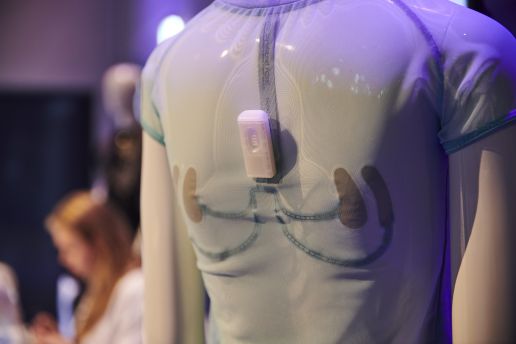
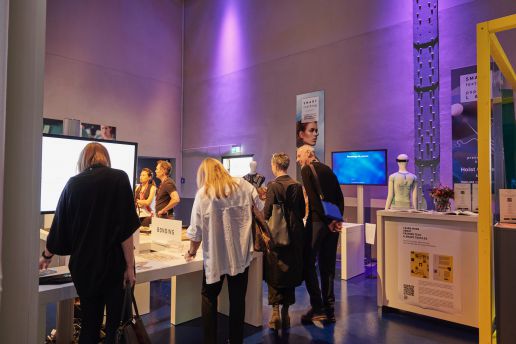
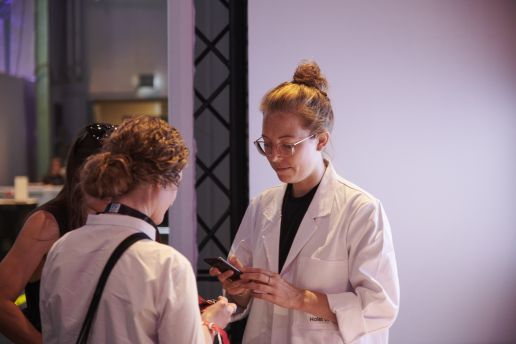
RE-FREAM PROJECT BY CARMINA FERRI. With her project Re-FREAM, Carmina Ferri, founder and CEO of Care Applications, wants to bring together designers and researchers to jointly develop innovative fashion concepts. Designers are invited to submit their proposals for ‘3D Manufacturing’, ‘Electronic & Textiles’ and ‘From Linear to Sustainable Circular Systems’. The winning innovative art concepts will then be developed in the three corresponding research centres.
The SUSTAINABLE INNOVATIONS Forum combines poetry and problem solving. It will showcase inspiring developments and establish new perspectives on the world of textiles: from extraordinary innovations, new material resources and the combination of the traditional and modern to captivating and thought provoking installations. Discover the following innovations:
- Karin Vlug und Bas Froon see the future of fashion in regional fashion production that is made to measure, on request and using digital technologies.
- CONSUMPTION OF HERITAGE. Sun Lee questions the values of consumers and producers and thus those of the conventional fashion system.
- PRINTING WITH LIGHT. Madeleine Marquardt combines new technologies with Cynatopie, one of the first photographic printing processes, thus opening up new possibilities for modern textile design.
- SEAMLINE PROJECT. Gu Qiong emphasizes the object character of clothing by highlighting seams in brightly coloured yarns.
- SISAL, MORE THAN A ROPE. Isabella Monaco uses sisal for clothing and is experimenting with hydrogen peroxide and sodium carbonate to make the natural fibre softer while maintaining its robustness.
- RINSE OFF. Caterina Tioli uses the properties of potato starch to stabilize unspun wool for processing.
- CT DAIRY. Gal Yakobvitch develops a water-repellent coating for textiles based from milk protein. The result is a sustainable unisex workwear made of vegetable-dyed second-hand T-shirts.
- FOREIGN FORAGING. Jeanette Lili Weiss poetically addresses the complex problem of scarcity and abundance in times of climate change.
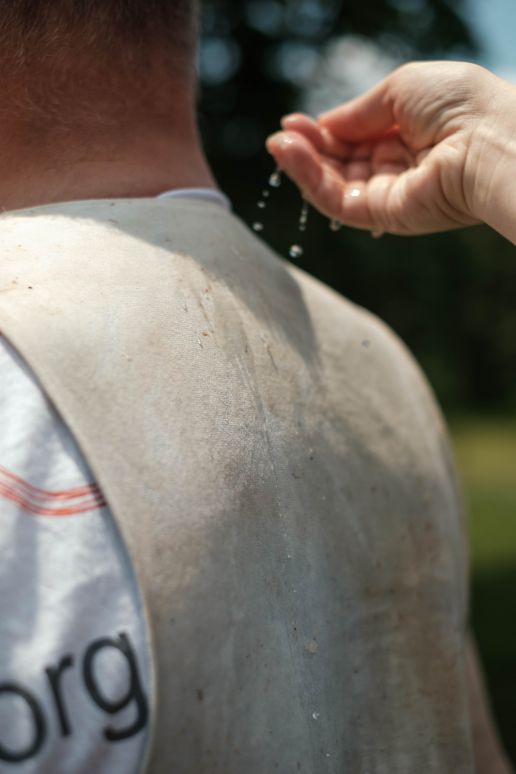
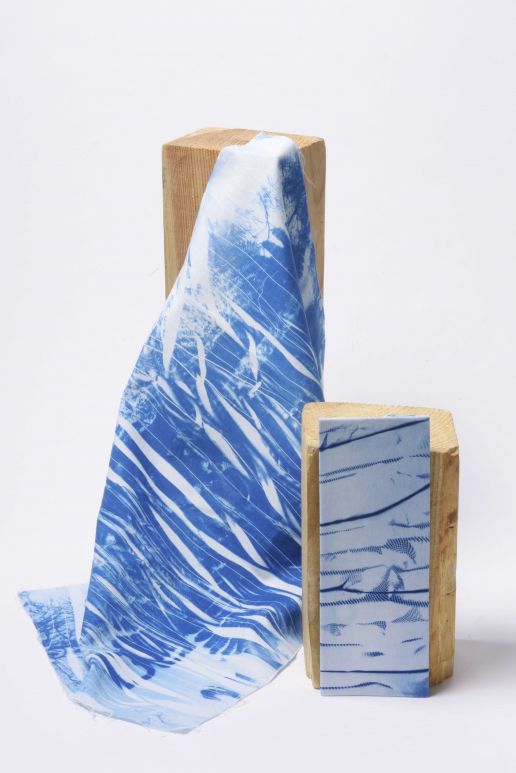
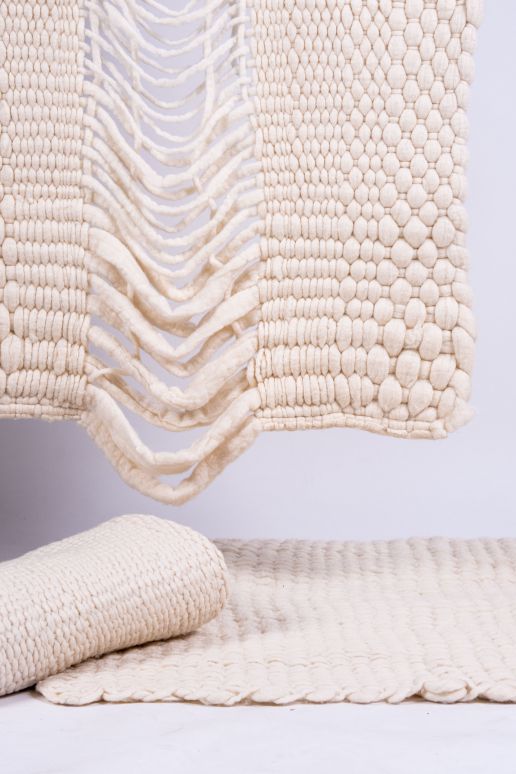
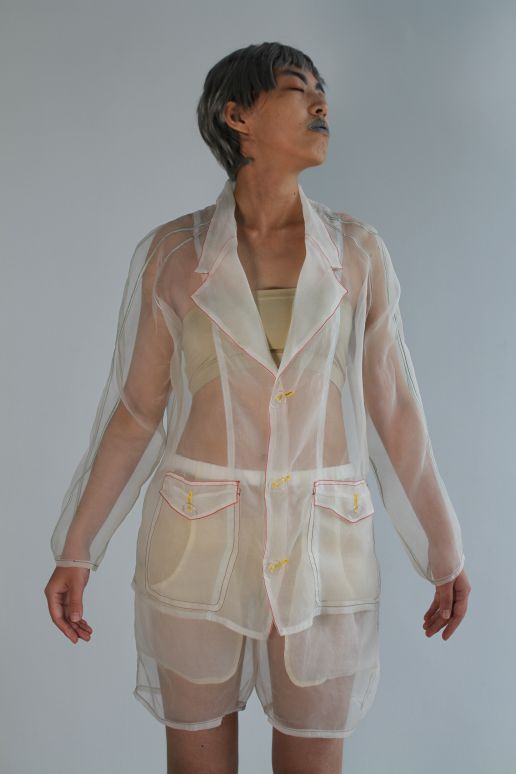
“Our goal is to take a look at the possible future with these 8 selected Sustainable Innovations, so that the industry and its professionals can reach the next level. It is an ongoing dialogue. We are a community that is growing and connecting, sharing visions and ideas – it’s a very inspiring atmosphere”.
Simon Angel, Curator Sustainable Innovations MUNICH FABRIC START
KEYNOTES & SEMINARS
KEYHOUSE also offers a comprehensive and exclusive event programme. This includes trend seminars, exclusive workshops, keynotes and round tables. You can find the complete event program here.
Exklusive Trend Seminar by Li Edelkoort – Tuesday, 4 Feb 2020, 4pm – 6.30pm
Arguably the most famous trend forecaster of our time holds an exclusive trend seminar. In an impressive presentation, GREEN WAVE – the Fashion Trends for Spring.Summer 21, as GREEN BOOK – the Recreationwear Trends for Spring.Summer 21, as well as STILLNESS – a Full Colour Forecast for Autumn.Winter 21/22.
David Shah about „The 10 Design Pillars” – Tuesday, 4 Feb 2020, 10.30am – 12pm
The trend forecaster and publisher of Textile View will deliver the keynote “The 10 Design Pillars”. David Shah presents new perspectives on design influences from Slowbilisation to Hopepunk, from Biophilia to Datascapes.
„Fashion Activism” Panel by Muchaneta Kapfunde – Wednesday, 5 Feb 2020, 11am – 12pm
FashNerd founder Muchaneta Kapfunde brings together the experts Kresse Wesling, Styliani Parascha, Marta Waydel and Marina Toeters as part of the panel discussion “Fashion Activism: Creating the Fashion of the Future.”
“United Nations SDG’s Agenda 2030: Challenges & Opportunities for the textile industry” – Wednesday, 05 Feb 2020, 1pm – 2pm
In 2015, the UNGC formulated 17 goals for the sustainable development of our planet and on this basis the “Agenda 2030” of the United Nations was created. Daniel Pinto, Business Director of Scoop, will refer in his presentation to the challenges and opportunities for the textile industry and explain how existing technologies and innovations in the industry can be used to achieve the set goals.
„How automation will change the fashion industry” – Wednesday, 5 Feb 2020, 2pm – 3pm
Five experts in technology, David Schmelzeisen, Ralf Schneider, Dr. Thomas Fischer, Jon Zornow and Sabine Kühnl will discuss “Don’t be afraid of robots – how automation will change the fashion industry” in a panel discussion. Automation, digitalisation and localisation are the trends that are reshaping the global fashion market. Is the fashion industry ready to adapt to new standards? What consequences does this have for the current procurement structure, also in terms of social responsibility?
“The data behind today’s winning marketing strategies” – Wednesday, 5 Feb 2020, 5pm – 6pm
Gina Gulberti, VP Digital Marketing at Launchmetrics, explains in her keynote “The data behind today’s winning marketing strategies”.
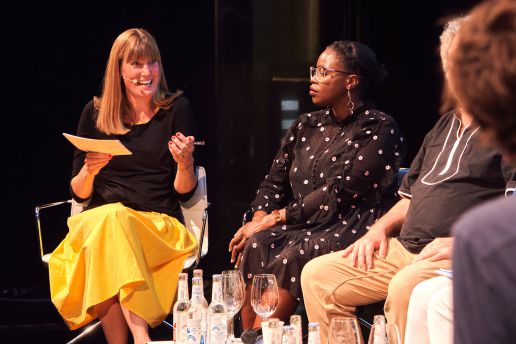
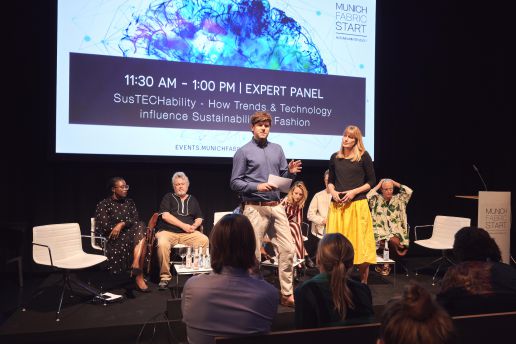
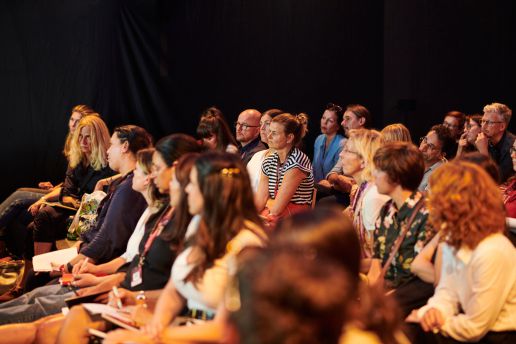
All dates and the complete lecture programme can be found here.
MUNICH FABRIC START & KEYHOUSE & SOURCING
04 February 2020 | 9.30am – 6.30pm
05 February 2020 | 9.30am – 6.30pm
06 February 2020 | 9.30am – 4.00pm
BLUEZONE
04 February 2020 | 9.30am – 6.30pm
05 February 2020 | 9.30am – 6.30pm
The Organisers of MUNICH FABRIC START in Conversation
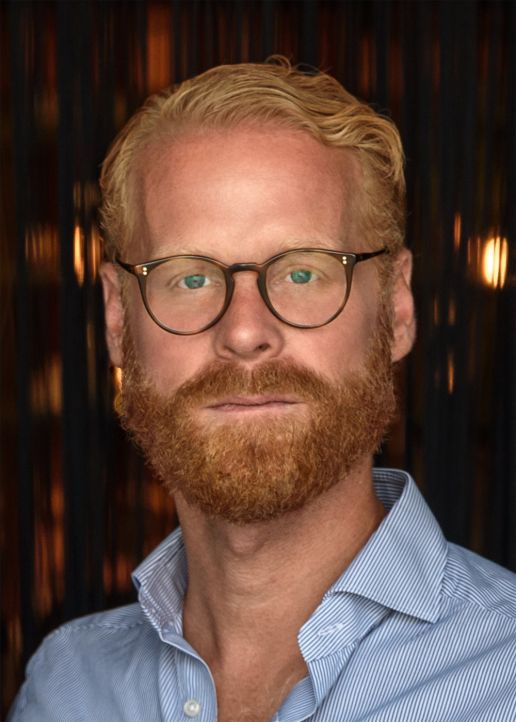
About sustainability, digitalization, transparency, the increasing demand for information and the desire to inspire.
In many areas of the textile and fashion industry, a rethinking is currently taking place. How much does this reorientation change the image of MUNICH FABRIC START?
Sebastian Klinder: We have anticipated the upcoming changes and reacted extremely progressively, very early on. With the creation of KEYHOUSE four years ago, we took a clear position and emphasized that sustainability and digitalization will change processes. That a new awareness in dealing with resources must be demanded. And most importantly, that progress and sustainability can only work in harmony. Against this background, the trade fair has developed further. Step by step. Very consistently. But always with the support and in partnership with our exhibitors and visitors. There is a great understanding and acceptance, which we experience time and time again and of course we are very grateful for this.
Frank Junker: I would like to add at this point that all these challenging issues are also about credibility. About certainty. We rely on transparency and information. We do not dictate, but instead we inspire and motivate. We want to inspire our exhibitors and visitors with the topics of the future and awaken understanding. This is also what the current leading theme ‘THRIVABILITY’ stands for.
How do you as a trade fair deal with the topic of sustainability?
Sebastian Klinder: We have set up special information points for the upcoming trade fair, staffed by specialists who will provide information and answers to fundamental questions. In addition, we have developed a very comprehensive icon label system that ensures the samples in the forums and areas are as ‘transparent’ as possible by outlining the sustainable and technical functions. This system will also provide information about the composition, origin and properties of the fabrics and additionals.
Frank Junker: We also work consistently and with great conviction to take sustainable measures in terms of equipment. For example, we use recyclable carpets, reusable, colour-neutral and high-quality materials for stand construction and in the forums. Only water-soluble colours without additives are used. The light sources are primarily energy-saving. In terms of gastronomy, we take care to source locally from the region.
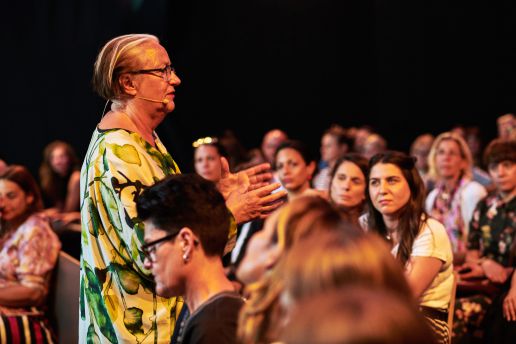
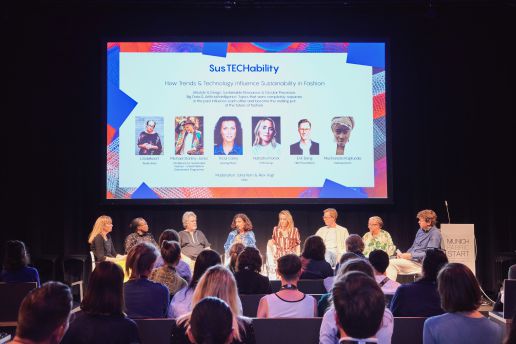

Is there a risk that with all these overarching themes, fashion, trends and the product… is neglected?
Sebastian Klinder: Amidst current media coverage and the numerous strategically dominated discussions, the impression can easily arise that the heart of MUNICH FABRIC START, namely the fabric and the fashion trends launched with it, will be pushed into the background. This is not the case. In our thinking, in all our forums and installations everything revolves around the fabric and its significance for one of the largest and most important industries worldwide – only much more complex than in the past. More than ever, it is about an integrated offering that is now broader. Ultimately, it’s about circular economy in the best sense along the entire textile pipeline reaching retailers and thus also the consumer. It is important to depict this complexity.
MUNICH FABRIC START offers a very comprehensive event programme supported by experts.
Frank Junker: These proven seminars, one of them being the trend lecture by Li Edelkoort which will now take place for the sixth time, as well as the numerous international panel discussions and keynotes in KEYHOUSE and BLUEZONE are attracting more visitors from season to season. This large and positive response shows very clearly how important high-quality, condensed information is – and thus ultimately communication. We at MUNICH FABRIC START see ourselves as initiators of a business platform for the industry. Our task is to initiate holistic cooperations and to set impulses. And last but not least, in cooperation with strong partners, to provide answers to the questions of tomorrow.
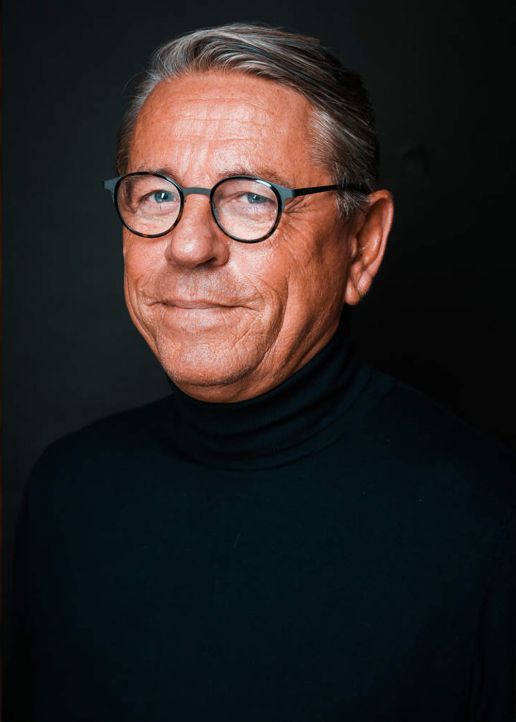
Interview with Simon Angel, Curator of SUSTAINABLE INNOVATIONS
Simon Angel has been the curator of the Sustainable Innovations Area in the KEYHOUSE since 2018. For the Munich Fabric Start fair, he is looking for exciting young designers, extraordinary innovations and new perspectives from the textile world. Register now to attend Sustainable Innovations at KEYHOUSE.
Simon, what Sustainable Innovations can we look forward to this season?
Each season, we try to present textile tendencies and new materials to inspire and broaden the context, techniques, meaning and value of textile related topics. Our goal is to show a glimpse of a possible future, so the industry and its professionals can use it to get to the next level. It is a constant dialogue. We are a community, growing and connecting together, sharing visions and ideas – it’s an inspiring atmosphere.
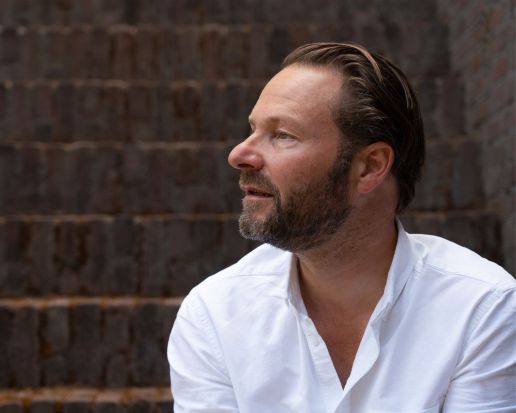
This edition of Munich Fabric Start’s Sustainable Innovations is a prime example to this approach – not only in respect to the responsibility held as a textile fair but also from the attitude and perspectives of the designer’s present. You see their visions in sound-created and laser print work. You feel their ideas in the provocative perspective that plastic is part of our natural landscape. And in the concept that ditching seams can lead to new manufacturing techniques and design approaches. But also, in revaluing materials like sisal and paper and the use of core natural elements like milk, starch and salt-crystals. I am positive that these projects will start a dialogue we can all learn from.
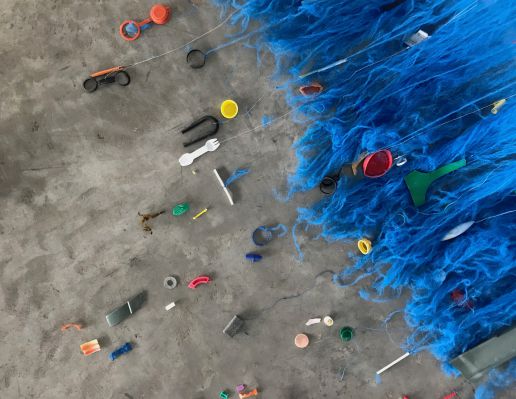
Again and again, the fear of the future, the consequences of environmental pollution and climate change emerge in the curated works. Challenge or opportunity, what do you think?
Your question shows that we are all still at very different stages in the process. Some people are aware and concerned about the transformations our environment is facing. Some are becoming aware of the changes and starting to value what still is. Others are reacting with action, ready to change the game. Specifically that we all have different point of views – with even more concerns to consider. So, there is not one dialogue, there are hundreds. There is not one solution, there is – as I refer to it – a chain of change happening on all levels. Therefore, I there is no “or” in between, instead it is an “and”: We have challenges AND opportunities. All of the designers offer opportunities through different approaches and create change, as challenging as it is.
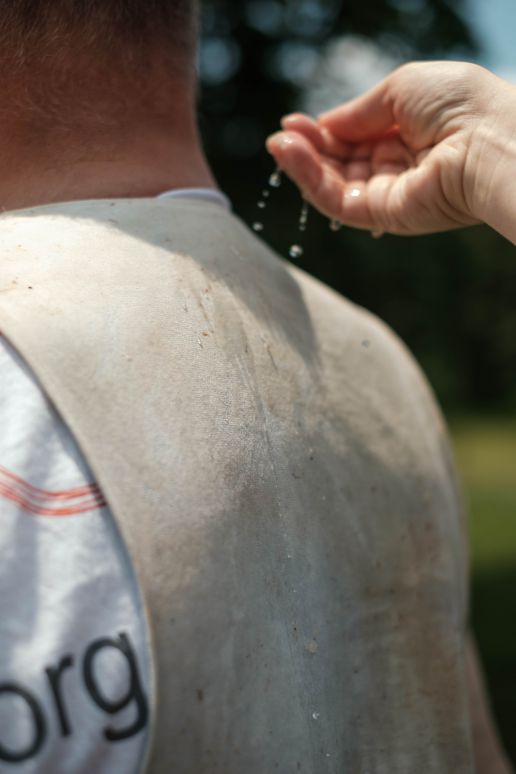
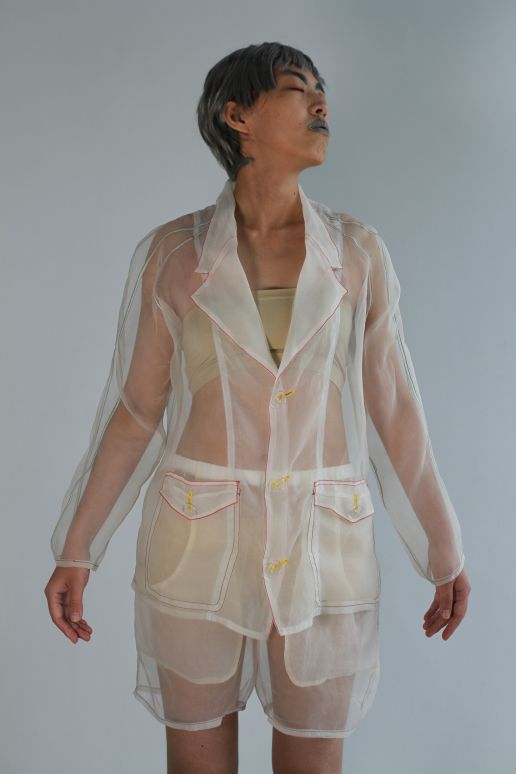
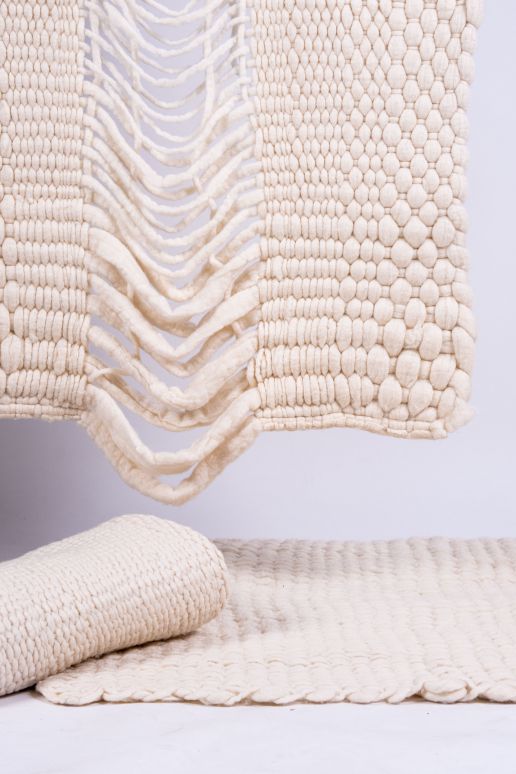
The use of potato starch, old printing methods and traditional Korean craftsmanship – one could almost say that “back to the roots” is the motto of the upcoming season. Posing the question, where does this development come from?
As designers are digging deeper, they often rediscover historic production processes and design principles, that make sense in the now as well. “We learn from history that we never learn from history”, a quote of a dear friend of mine. Now I learn that there are two meanings to this. The project of Caterina Tiolo is a good example for how changing the order of an old process can lead to totally new approaches – design and material wise. The development of redefining traditional processes and ingredients is really exciting. Or look at “Consumption of heritage” by Lee Sun: She uses traditional crafts and simple materials like paper in a modern fashion context and in that way values her heritage. So yes, if “back to the roots” to you means “revitalise tradition and values”, it is certainly a dominant development.
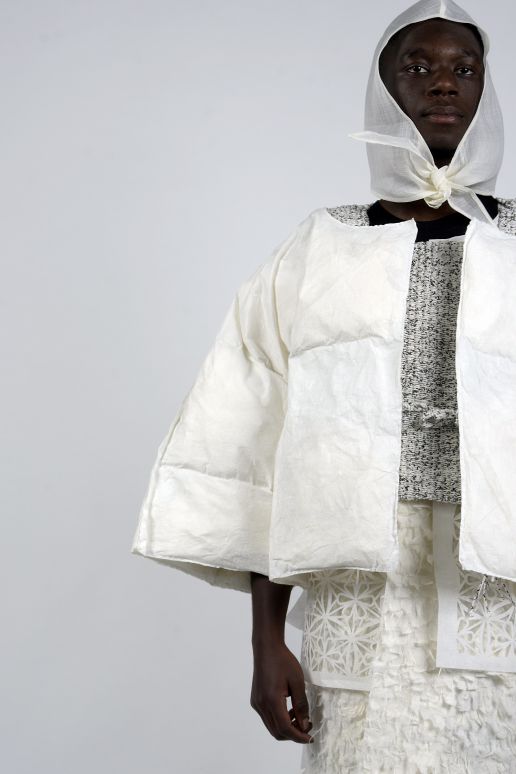
You are curating the Sustainable Innovations for the fifth time this season. What has changed?
From my perspective, it is not working on changes – we are working on this as a journey. I see many strong developments and tendencies and they are driven by dedicated professionals. Not only business and money-driven but instead also by values. I see that the industry is working on becoming a better version of itself. Feeling a glimpse of shared responsibility between designers, manufacturers, press and media, I am very optimistic. In the end it is all about the perfect couple: quality and consciousness.
2020 – a new decade begins. Looking to the future: how do you think the interplay of sustainability and textiles will develop?
As optimistic as I may sound – the more research I do in the field of textiles and fashion, it all comes down to our individual responsibilities: our behaviours as a human, existing as a consumer in this economic system. The causality of change has two central elements to start with: demand and supply. We have to stop putting ‘the good’ into a colonial and capitalistic context as from the early start of textile history to the fashion world of the now: The more we are aware and the more we share, together we can make this a great journey. Let’s take this chance and restore the enthusiasm to this economic world. Let’s thrive!
Visit Sustainable Innovations at KEYHOUSE on February 4-6 2020 in Munich.
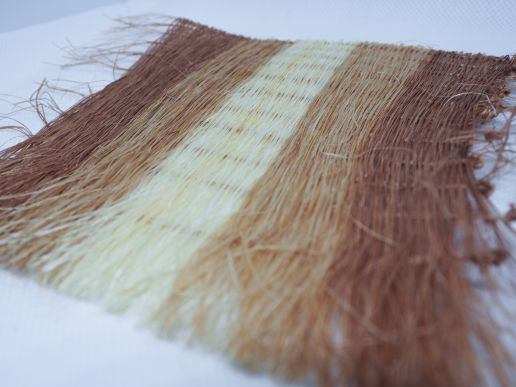
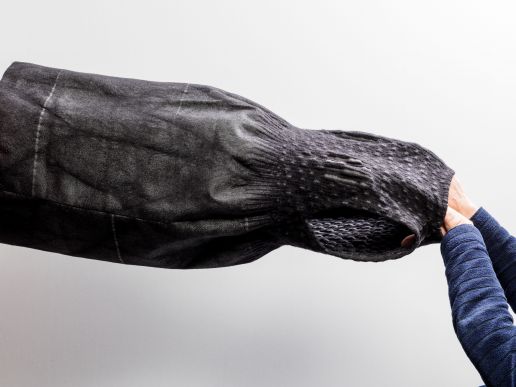
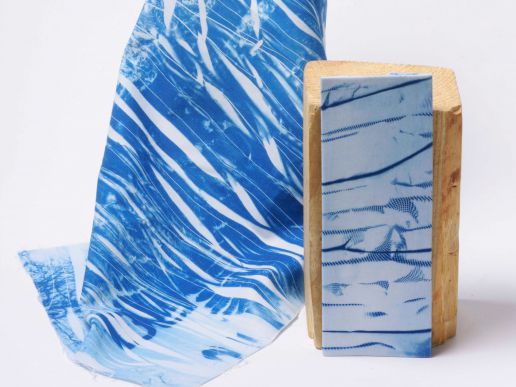
The Nurture Room: Interview with Pauline van Dongen
LET'S TAKE CARE OF FASHION TOGETHER.
During the previous edition of MUNICH FABRIC START, you presented the Smart Textile Pop-up Lab at the KEYHOUSE. What was it all about?
The aim of this Pop-up Lab was to familiarize people with smart textiles, and in particular those created by printed electronics. Through my work at Holst Centre (a leading Dutch R&D centre), I see the potential of printed electronics for the textile industry. These printed electronics are thin and stretchable and the printing process allows for a modular design approach. Moreover, they are made using familiar processes, namely through screen-printing conductive inks on flexible substrates like TPU and then heat bonding these smart “trims” onto textile. Visitors of the Pop-up Lab could see this process up close to better understand it and be inspired by the possibilities.



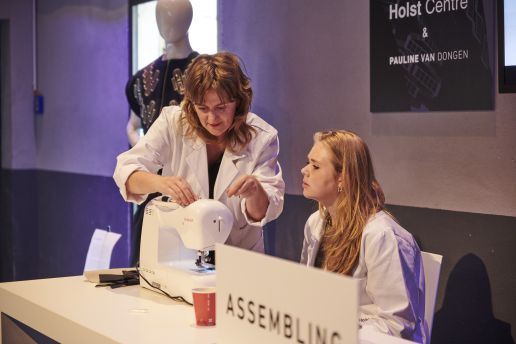
This time, visitors of the fair can book a (free) session in “The Nurture Room”. View the timetable and register here.
What will they experience there?
After having successfully shown the process of printing electronics and their integration in textiles, it is time for the next step. The Nurture Room is a space to reflect and to meet likeminded people who share a wish to do things differently within the fashion industry. It invites open dialogues addressing the urgency to create new relationships between humans and the clothing they wear.
The aim of the sessions at The Nurture Room is to not only inspire participants, but to ensure that they can follow up their inspiration with concrete actions once back in the office. You will be guided through the session by wearable technology experts: Pauline van Dongen and Marina Toeters. By booking a session on a particular topic, such as workwear, outdoor clothing or casual wear, you can tap into a wealth of knowledge and simultaneously help shape the direction of developments in the field of wearables.
The sessions are meant to connect companies covering the full value chain, in order to collectively contribute to new product developments. Together, we will discuss ways to embed technologies into clothing in ways that can nurture people and improve their wellbeing. Visitors will be able to encounter the latest developments that fall within this scope, such as MYSA 2.0: a “relax shirt” that guides the wearer through breathing exercises that can be felt through subtle vibrations along the spine.
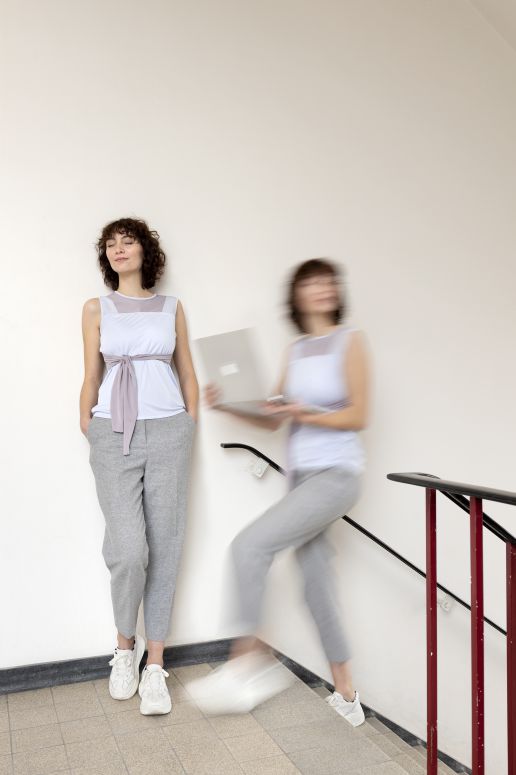
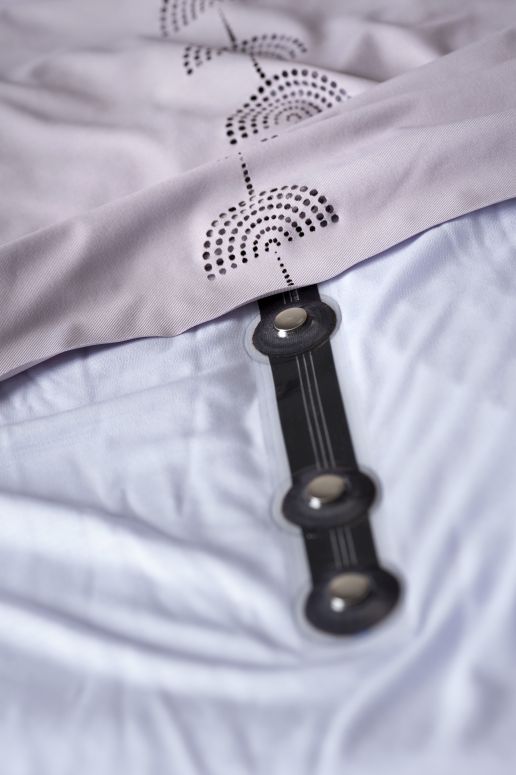
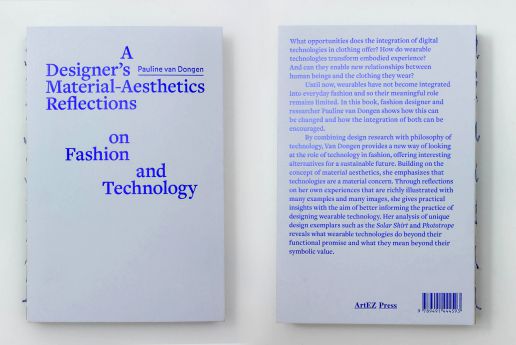
Can you tell us a bit more about your own research and how the idea of The Nurture Room relates to it?
In my own research, I focus on the way clothing mediates between our bodies and the world. Our clothes shape how we relate to the world, they actively shape our perceptions and our actions. I look at how we can strengthen our relationship and emotional bond with clothing and, by wearing clothing, with others and with the environment. When our clothes become active and responsive, how will this affect the human-garment relationship for example? My research shows that when we create wearables, we need to take into account the full set of experiential qualities of the garment, and not just the functionality of the technology. I extensively describe this approach in my recent book “A Designer’s Material-Aesthetics Reflections on Fashion and Technology”. It also includes practical guidance for designers and engineers who wish to develop wearables.
As a designer working between the fields of fashion design, textile innovation and technology, I understand these different worlds and know how to connect them. I would like people entering this space to think very consciously about what they want to develop and for whom, what new values the product will bring to people and how they incorporate considerations relating to the well-being of the planet. This ambition is reflected in the concept of The Nurture Room.
Why did you call it “The Nurture Room”?
Nurture is care that is given to someone while they are growing and developing. The term reflects the care with which we should all treat industry. In the context of “nature vs nurture”, the word “nurture” describes the influence of learning and other influences from one’s environment. I experienced how many new things I had to learn when I made a turn to wearables. In wanting to change the system as well as my own position and attitude as a designer, I also noticed that I needed to shed some of the premises that formed the basis for my fashion education. This learning and unlearning are processes that not many people in the industry take the time for or get the time for. While new perspectives are so desperately needed right now. So, to help facilitate this, our main message is: “Come and nurture yourself, by expanding your knowledge in the area of wearable technology.”
Visit The Nurture Room at MUNICH FABRIC START on February 4-6 2020 in Munich, Keyhouse, Booth #34
Due to the limited number of places available for the free individual workshops, we kindly ask you to register by mail to Chantal Gräff at cgr@munichfabricstart.com.
WORKSHOP TIMETABLE
Tuesday, 4th February
11.00 – 11.45 am: sports & activewear
14.00 – 14.45 pm: wool & tailoring
Wednesday, 5th February
11.00 – 11.45 am: workwear
14.00 – 14.45 pm: intimates
16.00 – 16.45 pm: outdoor
Thursday, 6th February
12.00 – 12.45 pm: casualwear
New Entries at MUNICH FABRIC START
Discover a selection of the latest suppliers and manufacturers to join the presentation of Fabrics, Additionals, Design Studios, Denim and Sourcing to showcase their collections for Spring.Summer 2021 in Munich. Register to attend now.

Forza Tekstil takes the expectations of their business partners to the next level by offering flexibility in production and perfect quality. The Turkish company is specialized in printed and plain fabrics, like viscose, viscose mixtures, cotton, linen, polyester and Tencel fabrics while adhering to the principles of productivity, sustainability and environmentally friendly production.
Section 2 | Stand F 208
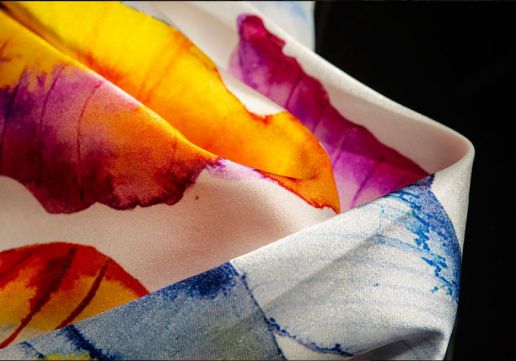
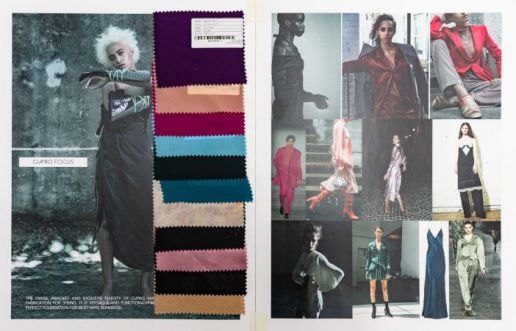
Shanghai Saite Silk was founded in 2004 as an incorporated company within the formation of the state-owned Shandong ZiBo No.2 silk weaving factory. We commit ourselves to designing, producing and selling women’s fabrics in the fields of silk, viscose and polyester.
Artrium 3 | Stand C 112
Telater creates with its long-lasting experiences and knowledge of raw materials and production techniques exclusive collections of fabrics and fashion with high quality. We are continuously evolving, visiting national and international fairs and catwalks in order to offer fabrics and designs aligned with the latest tendencies in the industry.
Hall 3 | Stand B 04
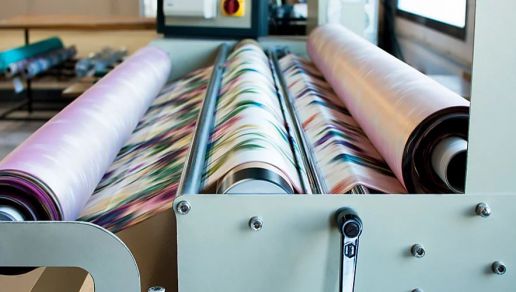
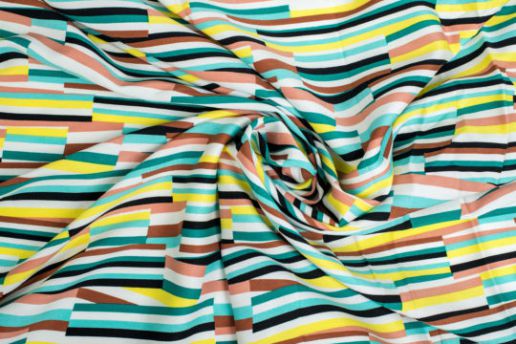
T-Style unites more than 1500 employees who work successfully every day on the development, production and improvement of high-quality knitwear made of cotton, viscose, polyester yarns and their blends. The company produces more than 20 tons of fabric per day – such as single jersey, pile fabrics, plush, interlock, ribbed textiles or fleece.
Section 2 | Stand E 224
Universal Textile produces underwear, outerwear, home textiles and upholstery fabrics since 1998. With a fabric production capacity of up to 60 tons per day, we offer outstanding services to brands from all over the world. We produce our fabrics in our own facilities in accordance with internationally recognized quality standards.
Section 2 | Stand E 221
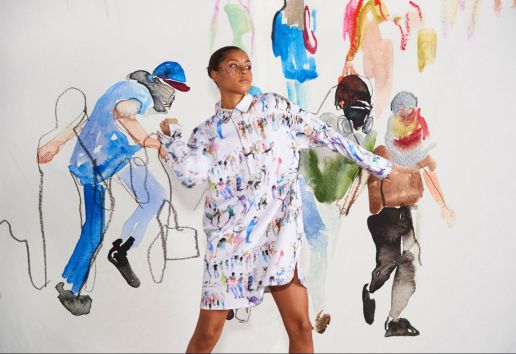

Having entered the zipper sector in 1988, ECE Zipper has been running at its modern plant with 20.000 m2 closed site and its qualified staff in Avcilar Firuzköy, Turkey. ECE Zipper is an integrated establishment with its narrow weaving unit, modern dye-house, casting-house where special pullers are designed and produced with advanced technology machinery.
Hall 1 | Stand E19
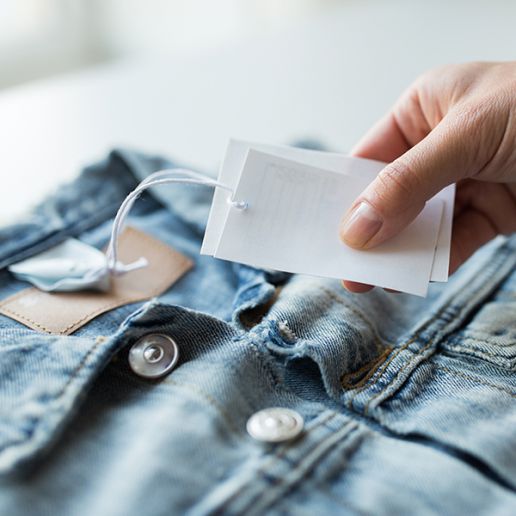
With over 12 years of experience in the trims and packaging industry supplying high quality products to a vast variety of domestic and international brands, we as Elements Printing and Packaging strive to give the best service to our customers. By remaining responsive to our customers’ needs and expectations, we are able to continuously adapt our business.
Hall 1 | Stand B15
Harmanci Label, as one of the leading label manufacturers in Turkey, serves to the biggest worldwide brands since 1931. Harmanci follows the needs of the sector as well as the fashion trends by producing woven, printed, screen printed and heat transfer labels and narrow woven ribbon in modern and environmental-responsible premises.
Hall 1 | Stand A 20
ITL is a global provider of Apparel Label Solutions supporting brands, retailers and manufacturers globally with a comprehensive range of products and services aimed at optimising brand identity and supply chain performance. Launching at Munich Fabric Start is their C.A.R.E Collection: a range of Conscious, Affordable, Responsible and Eco- Friendly labels that never compromise on quality or aesthetics.
Hall 2 | Stand A 19
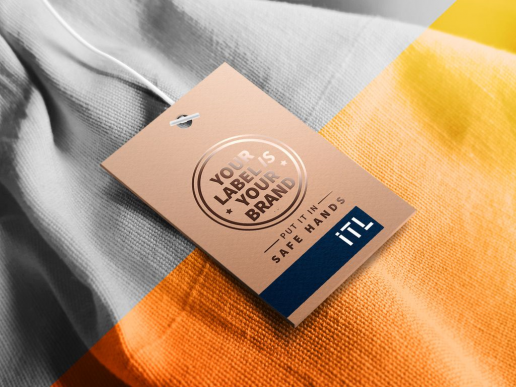
Linx Europe
Linx EU Newly developed collection made of recycled materials: outer fabrics, linings, trimmings. The focus is on sustainability and function alike. Mechanical functionality paired with innovative sustainable finishing variants. The fusion of fashion and function without limitation of hand feel and colour!
Hall 2 | Stand A 12
Sun Etiket is one of Turkey’s leading label and package design and -production companies providing services to national and international brands. Sun Etiket specialises in creating highly advanced, experiential labels and packaging since 1986. With over 150 experts in our team, we constantly focus on every brand’s uniqueness and strive to make the brand experience even more inspiring.
Hall 1 | Stand C 12

For over a decade, Denim Masters have worked in partnership with a variety of fashion brands as their denim apparel manufacturer of choice. Utilizing long-lasting tailoring expertise and traditional construction methods, our tailors and seamstresses create handmade garments of top quality at highly competitive prices.
Hall 7 | Stand B 06
Borkro Textile Wash LTD with its long-time experience in the textile industry, organizes and manages textile production in Bulgaria offering a complete range of women’s and men’s denim products, starting from pattern development to prototypes and from collections to bulk production. Furthermore, they are able to offer an extended variety of wash procedures and techniques which establishes them as one of the leading manufacturing companies specialized in denim garments. Their major goal is to offer fast and effective service, competitive prices, high standards, constant quality and high flexibility.
Hall 7 | Stand c 07
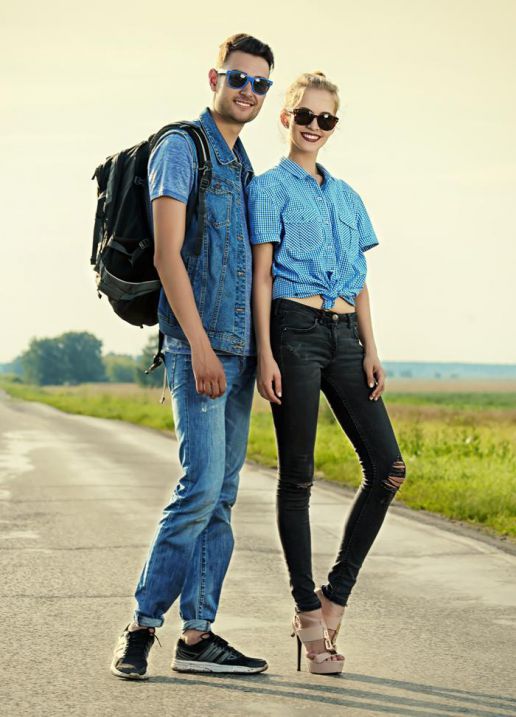
With a patented machine design and dyeing process, Island Denim can dye all the cellulosic fibres and blends in the desired yarn count (1 Ne – 200 Ne). By doing so, Island Denim gives stamina to many manufacturers of woven and knitted fabrics a great deal of freedom in the use of indigo in the design of their products.
Hall 7 | Stand c 20
Jeanci Konfeksiyon Tekstil produces mostly washed textiles on behalf of its own brand. The products are mostly denim, canvas, gabardine, satin and poplin. Besides, the company executes the finishing of woven fabric and textile by washing, dyeing in piece and other added values for final products. Jeanci has been manufacturing on behalf of prestigious brands in Europe for the last 23 years.
Hall 7 | Stand A 18
Stylers Group creates advantages for denim brands through strengths in sourcing, speed, stitching expertise and service, when it’s time for your jeans to take a step ahead – in fashion, sustainability and profitability.
Hall 7 | Stand B 03

Design Union is a textile print design studio producing unique contemporary fabric designs for fashion and interiors. The constantly evolving portfolio of silk screen and digital prints includes embroideries using vintage fabrics. The digital textile designs are sold to you as Photoshop PSD files in layers.
Section 1 Design Studios | Stand E 102
Primus Pattern is a textile design studio founded by Claudia Böhm. The qualified illustrator and owner of a studio in the heart of Munich is a creative researcher and conceptual partner in finding an excellent fitting and timeless design. Claudia Böhm combines drawn botany and geometry with handmade stylistics.
Section 1 Design Studios | Stand E 105


Care Applications works to reduce the environmental impact generated by the garment industry through new methods and devices. These developments are designed to optimize and modernize existing garment washing and dyeing machinery thus bringing improvements, savings and versatility. Within the Dye & Safe project, thanks to our advanced micro-nebulization metering device called ECOFinish together with our technical experience, we have been able to produce a traditional garment dye with exceptional penetration and evenness while using a minimum amount of water and greatly reducing the environmental impact. Care Applications offers this garment dyed with an even and penetrated standard dyeing process through the ECOFinish nebulization system saving 60% of water, 80% of energy and 99% of salt.
Hall 5 | Booth 23
A circular fashion industry is a regenerative system in which garments are able to circulate with maximum value retained for as long as possible before being able to re-enter the system through reuse or recycling. Therefore, we provide state of the art research, expertise and practical assets through workshops and software tools that help your brand transition towards circular practices.
Hall 5 | Booth 38
CLO Virtual Fashion creates cutting-edge 3D garment visualization technologies that cultivate a more creative and sustainable landscape for the fashion industry. CLO’s robust simulation engine allows you to create styles with countless layers and intricate details, which consistently solve glaring obstacles in your product life cycle.
Hall 5 | Booth 32
Recover works on the development of a closed-loop industry by offering brand, retail and factory partners a closed-loop solution for end-of-life waste management. The open-end spinner working for 7 decades with recycled cotton fibres is using textile waste as raw material to create new premium upcycled yarns. The Spanish company combines two resource and energy efficient processes – fibre upcycling and colour blend – to create new dye free upcycled fibres with accurate colours without using water or chemicals.
Hall 5 | Booth 15
A circular fashion industry is a regenerative system in which garments are able to circulate with maximum value retained for as long as possible before being able to re-enter the system through reuse or recycling. Therefore, we provide state of the art research, expertise and practical assets through workshops and software tools that help your brand transition towards circular practices.
Hall 5 | Booth 33

Cascade Enterprises is a cost effective, fully integrated, design-to-manufacture solutions service provider. The company offers ready-to-wear apparel to renowned retail and e-commerce fashion brands globally. We sample, source, plan, monitor and facilitate timely deliveries of high-quality goods that are ethically sourced.
Atrium 3 Sourcing | Stand D 110
Dragon Group Limited is an export-oriented company founded in 2001 and specialized in the development, manufacturing and distribution of fashion accessories. The company owns two factories for gloves production and at the same time has created partnerships with over 30 manufacturers of fashion accessories specialized in hats and scarves production.
Atrium 3 Sourcing | Stand D 108
Raith Textiles is a factory with GOTS and Oeko Tex certificate, producing baby- and children wear as well as women night wear for private labels.
Atrium 3 Sourcing | Stand D 104
Easy Invest Solutions is a manufacturer and exporter of high-quality men’s and women’s blouses with 20 years of experience. We supply both CMT as well as full product services, having among our suppliers the best of Italian, European and worldwide fabric producers. The company uses modern machinery and an automatic cutting system from Lectra. Prototype and sampling services are available as well as pattern creation and alteration and washing facilities for garment treatments.
Atrium 3 Sourcing | Stand D 110
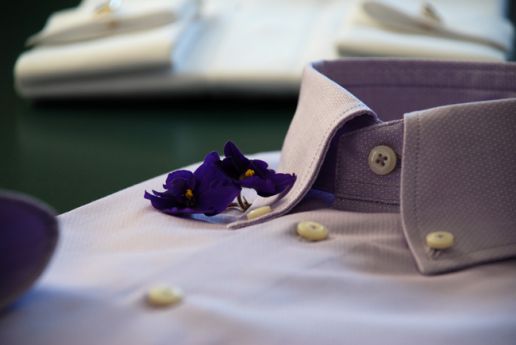
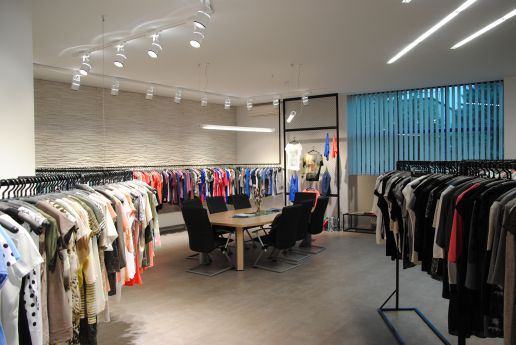
For 30 years now, Union 3 Fashion is a leader in women’s fashion, designing and manufacturing ready-to-wear garments. We are one of the largest export production units in the Balkans and Eastern Europe, exporting our products to many well-known clothing companies across Europe. Excellent customer service, competitive prices, best quality standards, quick production lead time, reliability and punctuality are among our main objectives.
Atrium 3 Sourcing | Stand D 105
Yünsa: Pioneers in Combining Sustainability and Digitalisation
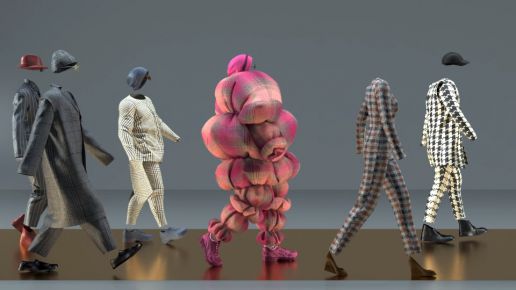
Brands, suppliers and retailers evaluate to digitize their value chain to reduce time in product development, gain cost efficiency and increase their eco-consciousness. Those brands and suppliers who prevent a digital option gain a significant competitive advantage over those that remain static.
We interviewed YÜNSA, as pioneers in the combination of sustainability and digitalization, they will offer a 100% digitalized collection in Spring.Summer 21. This and all successive collections will consist of fabric hangers for quality and hand feel reference as well as digital design and colour cards which are constructed and visualized in Penelope. Improvements in product development are expected to be up to 40% in terms of speed, cost and sustainability.
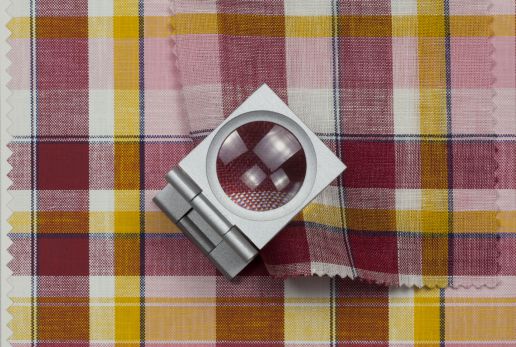
Digitisation goes hand in hand with sustainability, how are the digital connection tools used alongside the value chain to ensure sustainability?
Sustainability is not only about the raw materials but also the production process, chemical usage, waste management as well as time and energy consumption. Conventionally, as much as 80% of blankets and sample fabrics produced for either collections or customer requests were wasted and could not be used. If there are any mistakes in the finishing applications, fabrics need to be repaired and thus increases chemical usage and energy consumption, creating additional waste and pollution.
Digital product management is completely clean and fast. Developing a new pattern and colour variant takes less than an hour and is open to numerous corrections. With the possibility of simultaneous sharing via the cloud it does not rely on standard transportation methods which wastes time and resources. No waste, no pollution, fast and cost efficient.
What challenges have you faced throughout this process?
The biggest challenge is the resistance of the colleagues, managers and shareholders to the digital transformation. The industry and the laborers of our sector are very conservative in getting out of the traditional way of working. Financial and technical difficulties are easily overcome, as long as the team is open to change, believing in its benefits and supporting the process. We are lucky that Yünsa has an experienced, dynamic and enthusiastic team. Transformation is supported by the whole company. At this point, we should send a very special thanks to our information technologies team.
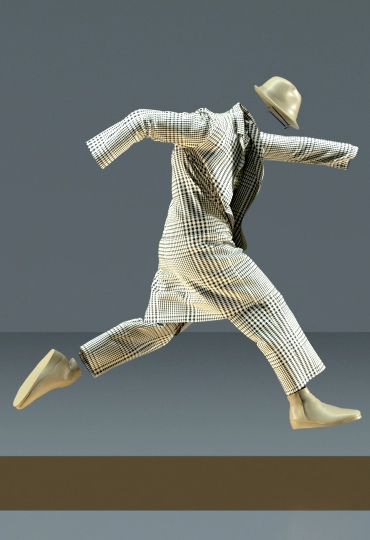
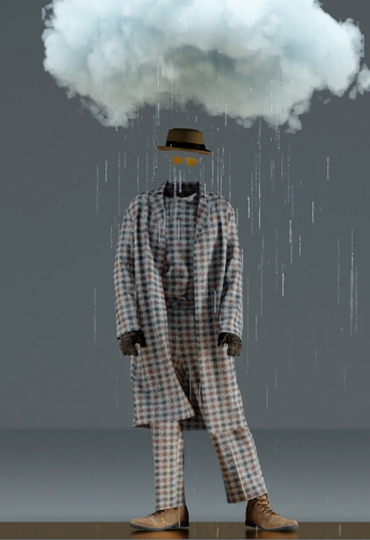
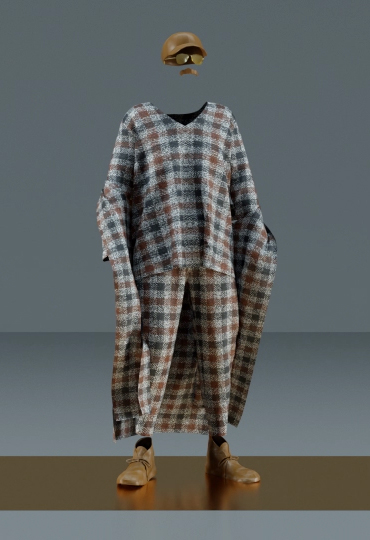
What were the initial steps of upgrading your sampling process with this new digital sampling process?
It all started with believing in digital transformation. We made the necessary technology investments in order to become pioneers in the sector, including Penelope CAD, Color Digital and ERP software. When our design team understood the benefits of digitization, they immediately took over the project.
We have digitized more than 9.000 yarn/colour combinations. This process is continuous as we create new yarns and colours every new season. For the Yünsa collections, we develop the designs and colour ways in our CAD software and create digital Yünsa collections. These collections will be available to customers in our online “Yünsa Shop” that will allow our customers and brands to browse the Yünsa collections, select and order fabrics, digital materials and make new requests.
Special customer developments are currently being developed in our CAD software and shared with customers via the cloud. The patterns are ready to be downloaded and fully integrated into the leading digital solutions such as CLO and ASSYST. For realistic simulation and digital decision making, the physical information based on measured parameters of our fabrics will also be included in the cloud library.
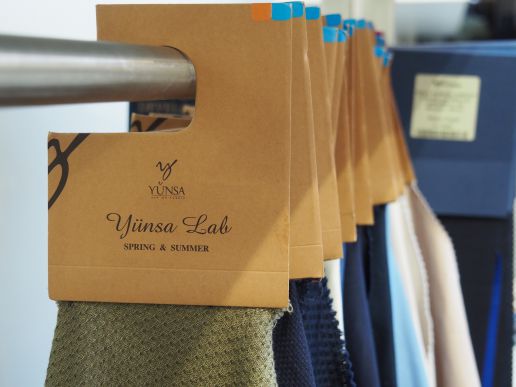
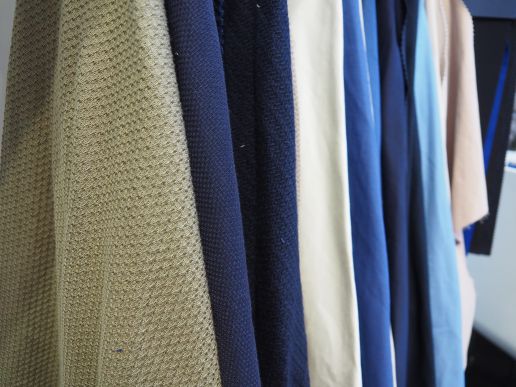
To what extent do you believe this is the future of production sampling for fashion?
Digital workflow is the real future of the fashion industry. We believe all parties of the fashion industry will experience the digital transformation in 3 to 5 years. Brands and suppliers who provide digital solutions will gain a significant competitive advantage over those that remain static.
What results have you seen in terms of cost and waste reduction?
Not much at the moment. As the majority of the industry is only at the stage of observation, alongside the digital versions we are still preparing the Yünsa collections and customer requests by traditional production means such as handlooms, blankets and sample meters, we haven’t seen a significant cost or waste reduction yet. Brands need to understand the benefits of this future workflow and start digital transformation instead of waiting others to step forward. Yünsa is ready to serve fully digital.
What are the benefits to the environment by embracing this new sampling process?
Digital workflow is clean and environmentally friendly. Expected minimum 40% sample production reduction means less dye stuff and chemical usage, less fabric waste, less energy & water consumption, less carbon release. I always use the “miraculous” expression for wool as the main raw material we use in Yünsa; natural, renewable, biodegradable, insulator, breathable, flexible, resistant and safe. Digital workflow is also miraculous; sustainable, eco-friendly, cost conscious, fast, standardized, precise.
Visit Yünsa at MUNICH FABRIC START on February 4-6 2020 in Munich, Section 1, Stand F103
Sustainable Standards Guaranteed at ReSOURCE
With increasing importance placed on sustainability, the need to guarantee truly sustainable standards is in greater demand by buyers and brands. Ahead of their showcase at ReSOURCE at the next edition of MUNICH FABRIC START, we interviewed representatives Heike Hess of the International Association of Natural Textiles (IVN) and Franziska Dormann of Global Organic Textile Standard (GOTS).
Briefly, IVN awards two quality seals for ecologically produced products: NATURTEXTIL and NATURLEDER. For both seals, the association has defined parameters that have become a standard in the industry. The association is co-owner of GOTS, the worldwide standard for the production of sustainable textiles on an industrial scale.

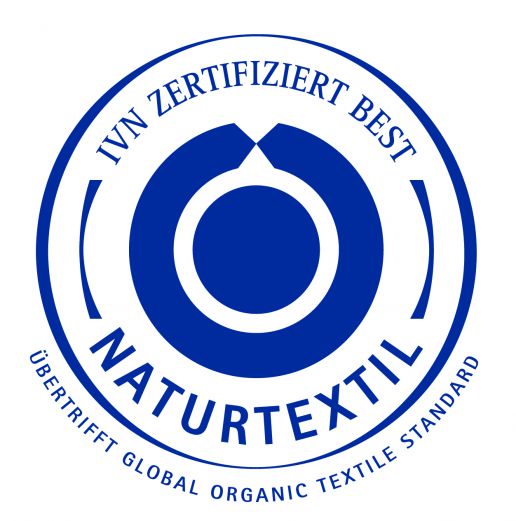
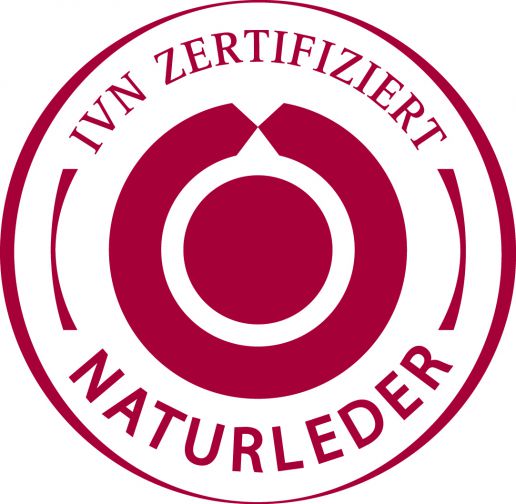
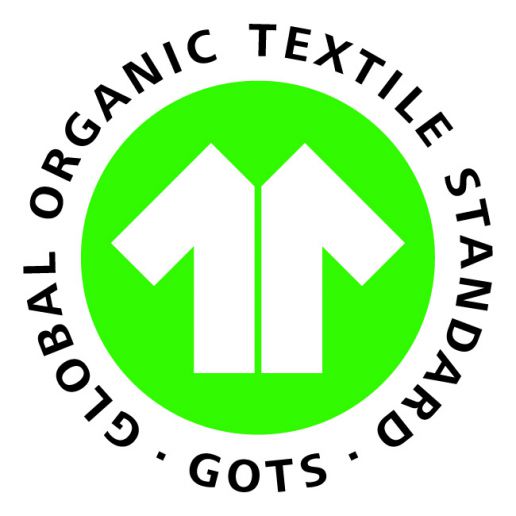
What is the most frequently asked question at the beginning of a consultation?
GOTS: Often it begins with a general introduction to the Global Organic Textile Standard, i.e. What is covered by the standard? How is this ensured? By reviewing the strict social and environmental criteria throughout the entire textile supply chain – from the fields to the wardrobe – GOTS guarantees safety and transparency for the consumer. The independent certification ensures credibility compared to mere self-explanatory statements.
IVN: Most visitors ask us for certifications and seals. How to get certified, which fabrics and accessories must be sourced to reach IVN BEST or GOTS requirements or how do our seals differ from others founds in ReSOURCE, register here.
What changes do you want brands to make in the next 5 – 10 years to bring about and anchor sustainable aspects of the textile industry?
GOTS: I think most people have recognized the importance and urgency of this because no one can fly under the radar for long. Sustainability interests those who have to justify themselves the most. For us, these are the brands that sell. Everyone involved is interested, the question is which actions follow? In industry, the spectrum ranges from greenwashing to genuinely practiced sustainability. Consumers range from lip service to showing a real willingness to spend more on sustainable products.
IVN: Many buyers, especially brands, are looking for certified fabrics. The selection of certified fabrics made with natural fibres in ReSOURCE is quite large, but for synthetic and regenerated fibres there is a lack of products that have been awarded truly sustainable seals. I would like to see more interest from the brands here, which would result in a stronger commitment on the part of the fabric suppliers.


How has the brands’ approach to research and purchasing changed over the last seasons?
GOTS: The trade fairs, as well as specific enquiries by e-mail, have resulted in more and more brands wanting to find out which suppliers are already GOTS-certified. Here I refer to the public database with almost 6,000 certified companies. Many companies that are interested in GOTS want to continue working with their existing suppliers and therefore jointly go the way of gaining certification of their entire supply chain.
IVN: You can clearly see that the topic of sustainability is becoming increasingly important for brands. Visitors at ReSOURCE are better prepared and ask more concrete questions. Many are looking for specific products and have clear expectations about what a fabric should be like. The typical length of time brands exhibit in the ReSOURCE area has definitely increased. More and more buyers who do not explicitly belong to sustainable companies are also showing interest in the products exhibited at ReSOURCE.
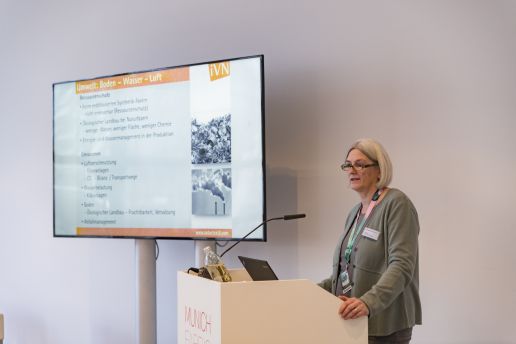
What are the specific challenges facing a future-oriented fashion industry?
IVN: The challenges vary depending on the size and orientation of the fashion companies. Smaller brands – especially in the sustainable segment – have problems finding certified suppliers who also supply small quantities. Larger companies use many different materials and accordingly many different suppliers. It is difficult to have an overview of the entire supply chain up to your own company, especially if you attach importance to a certain level of sustainability held by suppliers and sub-suppliers. It is still a challenge to reconcile certification and sustainability with the profitability of products. For particularly fashionable brands, it is still challenging to find exclusive or unique fabrics and additionals in sustainable qualities. There are certainly some other challenges, but overall it is more important that today means making sustainable fashion easier and more profitable than it was a few seasons ago.



Ipeker Innovates with 100% Vegan Collection
Steadfast in their commitment to vegan and sustainable production, the V-Labeled Fabric producer İpeker will launch their latest collection of 100% vegan cupro fabrics at MUNICH FABRIC START on February 4-6 2020.
In 2017, İpeker successfully united tradition and animal welfare to become the world’s first fabric producer to bear the European Vegetarian Union Label (EVU), ensuring over 150 fabrics are 100% V-Labeled Vegan fabrics. The fully integrated vertical mill specialises in the production of sustainable, innovative prints and classic collections with a vast range of products including cupro, viscose, acetate, linen, cotton, tencel, polyamide and recycled polyester fabrics, available with or without lycra blends.
Focused on innovation and sustainable materials, the Vegan Cupro Collection launching Spring.Summer 21 has been given a new direction. European flax certified linen mixtures offer new textures, extended qualities and designs in linen burn-outs. New florals, jungle motifs and the simplified aesthetic of geometrics accent the collection. Modern lines shape the fashion look with elegance together with the latest textures and seasonal colours well-blended throughout the print collection.
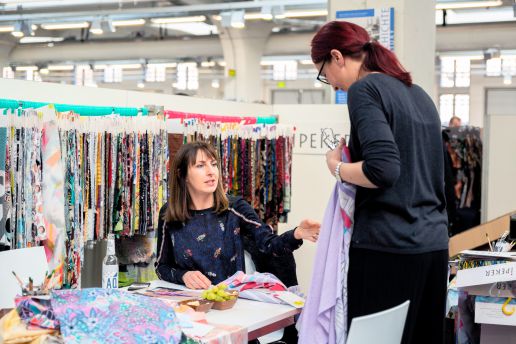
What can our visitors discover about your production processes?
The company has developed a vegan textile process (VTP) production system to create its biodegradable vegan cupro with reduced environmental impact. Our Eco-Corrosion technique is a key element to ensure the longer lifespan of fashion garments. Rose Finishing is a new patented fibrillation process which is used for Vegan Cupro, by using such processes, compared to our competitors with similar products, we reduce 31.8 % water (20.533 tons per year), and 60.2 % prevent in energy (300.000 kwH per year).
What is your biggest focus in terms of Research and Development?
At İpeker, the sustainability and innovation teams work together to develop the latest technologies and fabrics. Right now, we are focused on developing a fashion collection which is 100% vegan as well as sustainable.
What role does trend forecasting play in your design and development processes?
İpeker focuses on fashion trends at a global level but must also consider the individual fashion needs of different counties as well. Our offices in Como, Italy and Augsburg, Germany play a vital role throughout the creative process. We have local designers who apply their regional creativity to our local fashion approach. With another 10 designers who work to develop the main collection taking a more global fashion approach. World famous design studios from London, Como, Paris and trend studios like Nelly Rodi and Peclers Paris play an important part in our design and colour direction. İpeker then applies its own hand writing through innovative print techniques to coordinate a global fashion statement.
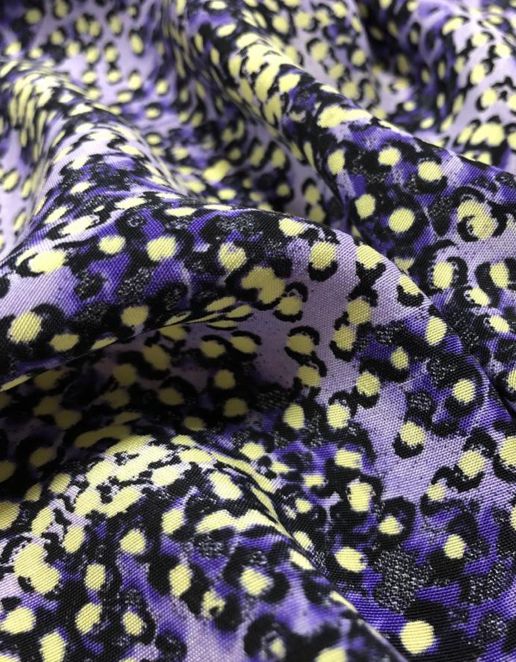
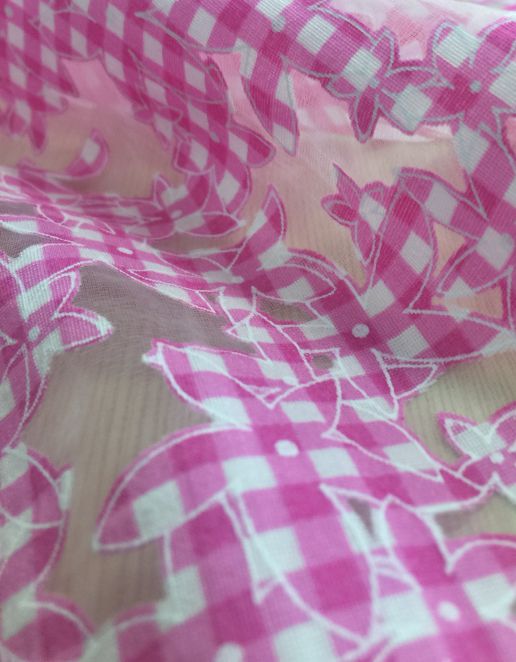
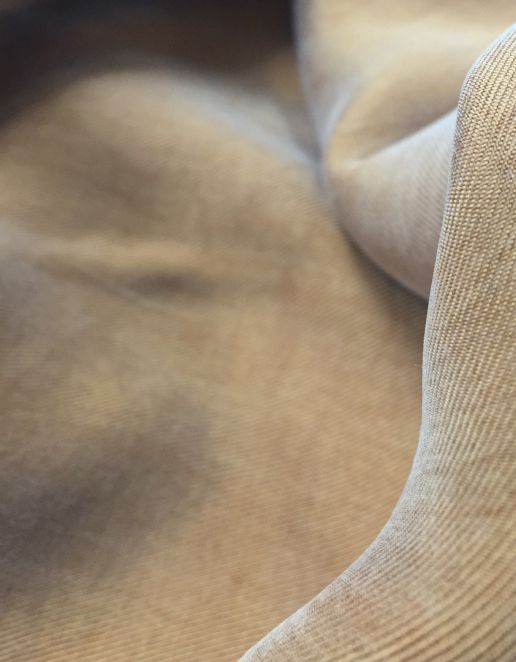
Visit İpeker at MUNICH FABRIC START on February 4-6 2020 in Munich, Section 1, Stand F109
New Icon Guidance System to increase Transparency
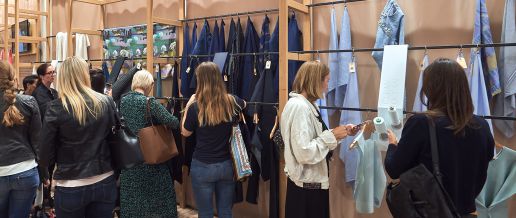
Answering to the theme of innovation driven by THRIVABILITY, MUNICH FABRIC START has developed a new icon guidance system with which all material highlights presented in the trend forums are marked according to their sustainable as well as technical functions. In this way, trade fair visitors can quickly and clearly see what additional product features and functions the shown fabrics and ingredients have.
Each of the 44 icons indicates a specific characteristic related to the sustainability or performance of the respective product. With the help of these icons, manufacturers can highlight the added value of their products and at the same time make it easier for interested buyers to navigate through the increasingly vast range of products on offer.
“With our new icon guidance system, we are highlighting the interface between contemporary aesthetics and invisible but important advanced product features. In doing so, we see MUNICH FABRIC START neither as a certification body nor an audit agency – for the given classification, we rely on the information and honesty of the respective supplier of the corresponding samples. We are thus taking an important step towards information, transparency and responsible action in the interest of the industry.
Jo Baumgartner, Fabrics & Trends MUNICH FABRIC START
In this sense, all specific properties such as eco-labels, social standards, performance indicators, limit values, chemical ingredients, etc. must be verified again with the respective provider. In the trend forums at MUNICH FABRIC START, you will find the icon legend with the corresponding explanations and meanings behind all of the icons.
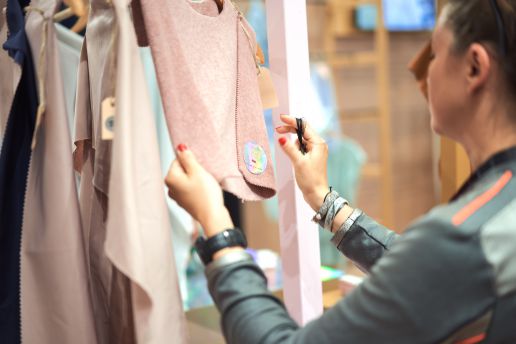


Looking Back: 2019 Hightex Award Winners
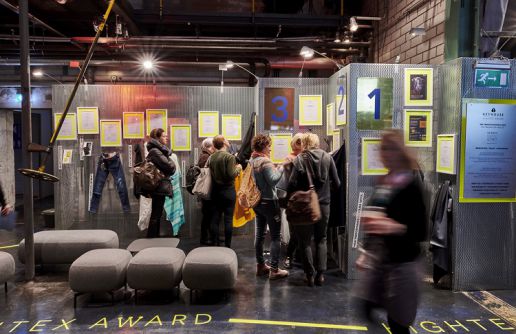
The Hightex Award is an opportunity to recognise the most significant, innovative and resourceful developments selected among Munich Fabric Start and Bluezone exhibitors. As we prepare to showcase the novelties of 2020, let’s take a look through the 2019 winners of the 6th & 7th editions of Hightex Award.
January 29th – 31st 2019 Edition of Munich Fabric Start
1st Place
Becker Tuche from Aachen has been awarded for a new, super lightweight and highly functional product development consisting of a combination of wool and Cordura with spandex. Despite the low weight, the new fabric has a high abrasion resistance and a very high water vapour permeability. The new product is ideal for outdoor styles, streetwear and corporate fashion.
“I am very pleased with this Award. For more than a year now we at Becker Tuche have looked into mixing various clothing segments from fashion, sportswear/outdoor, Corporate Fashion and workwear. Against this background the Wool Performance series combines classic wovens in wool and wool blends with such functions as wind breaking and waterproofing well-known from sportswear. The result is an individually coordinated quality portfolio fit for many applications. In response to the strong interest we are currently developing other fabrics made of wool/Cordura with technical functions.”
Peter Recker, CEO Becker Tuche, Aachen
2nd Place
The second place was received by Soorty Enterprises for “Rain Shield”, an extremely light, recycled and water-repellent denim in Tencel/Nylon blend that impressed not only numerous features but also with its elegant look. The fast-drying, water-repellent, heat-insulating and form-resistant product also scored with a soft grip and subtle gloss finishing.
3rd Place
Mectex by Manifatture Italiane Scudieri came in third place with two Hyperlight 3Layer fabrics and the associated continuous development of innovations and functional materials. The Italian company always finds new ways and solutions to combine comfort and function perfectly and is known for its high-tech developments in the sportswear and outerwear segment. For example, heat-insulating, reflective and ultra-light qualities with water-repellent, bacteria-resistant and breathable graphene membrane that glow in darkness.
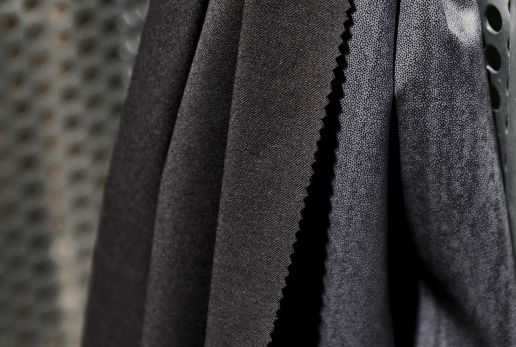
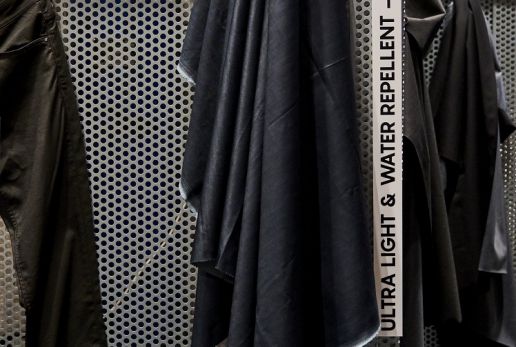
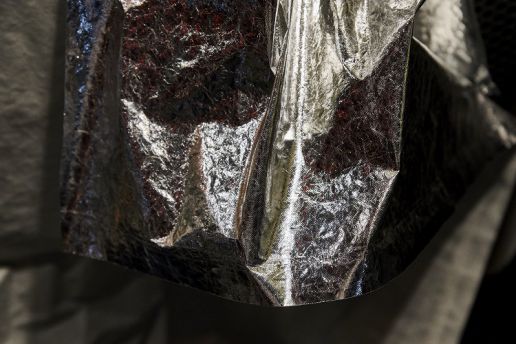
September 3rd – 5th 2019 Edition of Munich Fabric Start
1st Place
RDD TEXTILES from Portugal wins first place with a bonded double-sided jersey quality. Outstanding was the jury’s assessment of the development of this new bonding technique through an environmentally conscious mechanical process and newly developed without any additional adhesive. For the filling, 100% Tencel TM which uses an environmentally friendly fiber. According to RDD Textiles this excellent jersey quality, first introduced at MUNICH FABRIC START, is breathable, warming, comfortable, extremely lightweight and absolutely fashionable.
„We are very happy about this award, which we have now received for the second time. The award especially means a lot to us because this now award winning article is a real novelty. For the launch of this outstanding jersey quality, the HighTex Award is a welcomed marketing tool to publicize this novelty in the marketplace.“
Elsa Parente, RDD TEXTILES
2nd Place
Second place goes to M.T.T. SPA MANIFATTURA TESSILE TOSCANA from Italy for a wool quality with 14 percent polyamide content currently offered at a high fashion level. This is ensured by a graphic PU print in a technically aesthetic vinyl look. Abrasion and pilling are drastically minimized by this fashionable way of coating. Ideal for trend-setting womenswear with classic wool properties.
3rd Place
Third place goes to fabric specialist BRUGNOLI, also based in Italy, with a highly functional 3-layer technology. New is the use of bio-based polyamide. The elastic protective membrane is waterproof, windproof and breathable and therefore predestined for outdoor fashion. The first layer is made of extra fine merino wool and bio-based polyamides. The second layer offers a high degree of comfort and functional protection as an extra thin elastic membrane. With the third layer featuring extremely thin polyamides plus elastane. The result is a soft shell quality for jackets and pants that is already used by well-known Italian fashion and function brands.
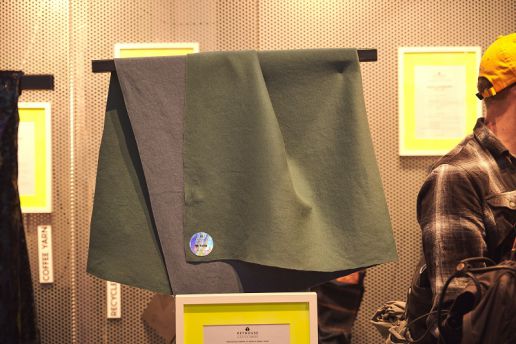
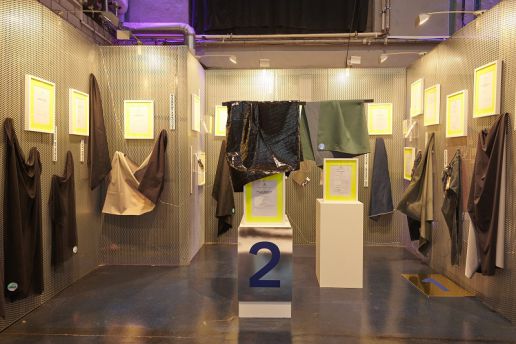
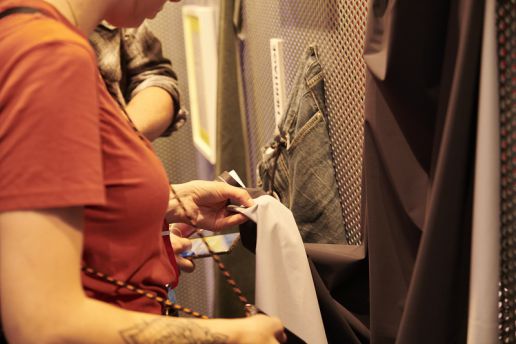
Amidst the current restructuring of our industry and in order to meet innovation cycles and grant enough time for new developments, the organisers of MUNICH FABRIC START have decided to relaunch the Hightex Award as an annual award beginning September 2020 with a newly designed format.
The HighTex Award is part of an overall conceptual approach by MUNICH FABRIC START as one of the world’s largest textile fabric fairs for intelligent process solutions, innovative highlights, biotech, digitization and sustainable innovation.
„We see the HighTex Award as recognition for outstanding achievements and at the same time as motivation which encourages unique innovation projects. It promotes sustainable contributions towards a clean future and more conscious use of resources thanks to the innovative use of materials. Our congratulations to the top three companies and our respect to the performance and commitment of all of the participants and their innovative product developments.”
Frank Junker, Creative Director MUNICH FABRIC START



